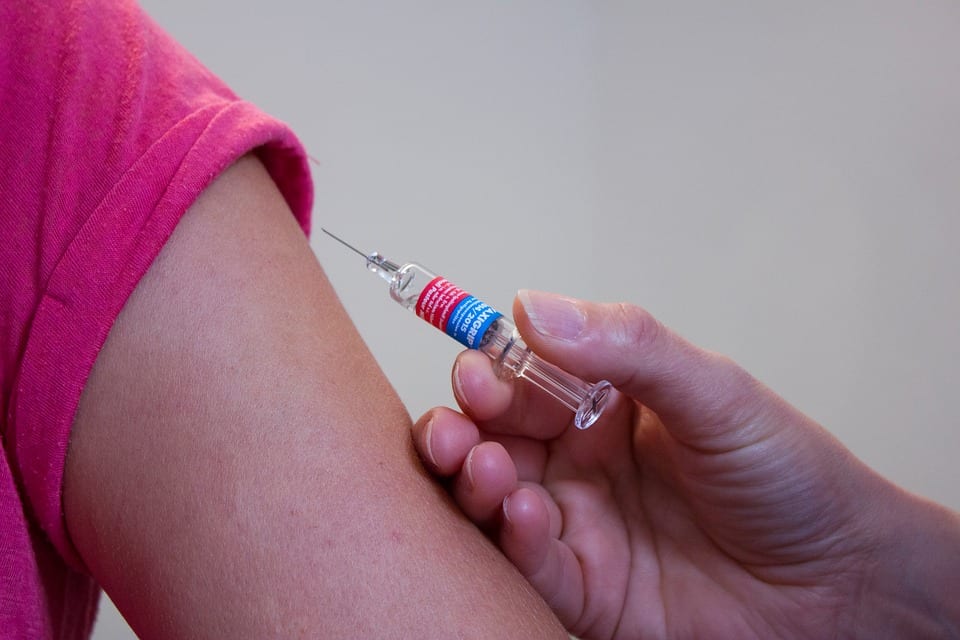By Katie L. Flanagan
For years a myth has been propagated that the MMR vaccine causes autism. However, new research has confirmed the link does not exist.
Last week, a Danish study published in the Annals of Internal Medicine gave considerable weight to the existing body of evidence that there is no link between measles-mumps-rubella (MMR) vaccination and autism (1). Indeed, no studies have confirmed such a link since Andrew Wakefield’s fraudulent paper was published in the Lancet in 1998 suggesting that MMR vaccination might cause autism (2). It took twelve years for Wakefield’s paper to be withdrawn, by which time the damage had been done. The increase in vaccine hesitancy and refusal as a result of this misinformation has led to repeated outbreaks of measles and mumps throughout the world’s wealthiest nations, with cases doubling in Europe in the last year, and New Zealand currently suffering its worst measles outbreak in years.
So, let’s unpack the Wakefield paper a little. What did it say and what was wrong with it? Essentially it describes 12 children who had inflammation of their colons (enterocolitis), eight of whom had received MMR vaccination prior to the onset of developmental regression. It went on to suggest a possible causal link between MMR vaccination and development of autism in these children. A study of 12 children could not possibly have the power to show a causal link and the suggestion should never have been made in such a small study. There was no unvaccinated control group and the 12 consisted of a carefully selected group of children.
Furthermore, the research was partially funded by lawyers involved in lawsuits against vaccine manufacturers. Wakefield, an anti-vaccine activist, went on to publicly campaign against MMR vaccination and continues to do so to this day. Autism advocacy and anti-vaccination groups seized the media attention and used the paper to further their case against vaccination. Wakefield was subsequently found guilty of unethical and dishonest behaviour. Following an investigation, he was found guilty of deliberate falsification in the paper and struck off as a medical practitioner in the UK for professional misconduct.
This paper and the subsequent media hype led to a huge decline in the uptake of MMR vaccination worldwide. The measles virus is highly infectious – coming within 2 metres of an infected person gives a 90% chance of infection if non-immune. Outbreaks therefore spread rapidly in unvaccinated populations and vaccine refusal has led to a surge in totally preventable severe illness and death worldwide. Furthermore, public confidence in vaccination in general greatly declined after publication of the Wakefield paper, so other vaccines are being refused too.
In the new Danish paper, Anders Hviid and colleagues performed a comprehensive country-wide analysis of more than 600,000 Danish children and greater than 5 million-person years of follow up, finding no evidence of a link between MMR and autism. It is the largest study yet to address this question, and the 12 children in the Wakefield paper pale into insignificance by comparison. Highly reliable prospectively collected and independent vaccination and autism data were obtained from nationwide registries. The authors found no link between MMR and autism even in those deemed at high risk of autism e.g. those with autistic siblings, older parents, low birth weight, or a series of other known risk factors. Given the large size of the study it is highly unlikely that even a minimal increase in autism would have been missed.
There is hope that measles can be eradicated entirely from the world, as was achieved with smallpox through vaccination. However, eradication requires more than 95% of people to be vaccinated. Vaccine refusal by educated parents, therefore, is hindering progress. Indeed, it will be hard to achieve while the mythical link between MMR and autism persists and this fake news keeps circulating in the media.
Sadly, the intense media attention surrounding the Wakefield paper was such that this link is one of the few things that lay people think they know about vaccination. Considerable research resources have been put into debunking this myth when they could have been spent on researching a problem that actually exists.
The Hviid paper provides one more solid piece of evidence and it really is time to finally lay to rest the false information that MMR causes autism and move forward with the important goal of eradicating this deadly disease once and for all.
References:
Hviid A, Hansen JV, Frisch M, Melbye M. Measles, Mumps, Rubella Vaccination and Autism: A Nationwide Cohort Study. Ann Intern Med. 2019 Mar 5. doi: 10.7326/M18-2101 [Epub ahead of print].
Wakefield A, Murch S, Anthony A, Linnell J, Casson D, Malik M, et al. RETRACTED: Ileal-lymphoid-nodular hyperplasia, nonspecific colitis, and pervasive developmental disorder in children. Lancet. 1998; 351: 637-41.
Professor Katie Flanagan is an Infectious Diseases Physician and Clinical Professor at the University of Tasmania.
The author has no conflict of interest to declare.
Disclaimer: The ideas expressed in this article reflect the author’s views and not necessarily the views of The Big Q.
You might also like:

